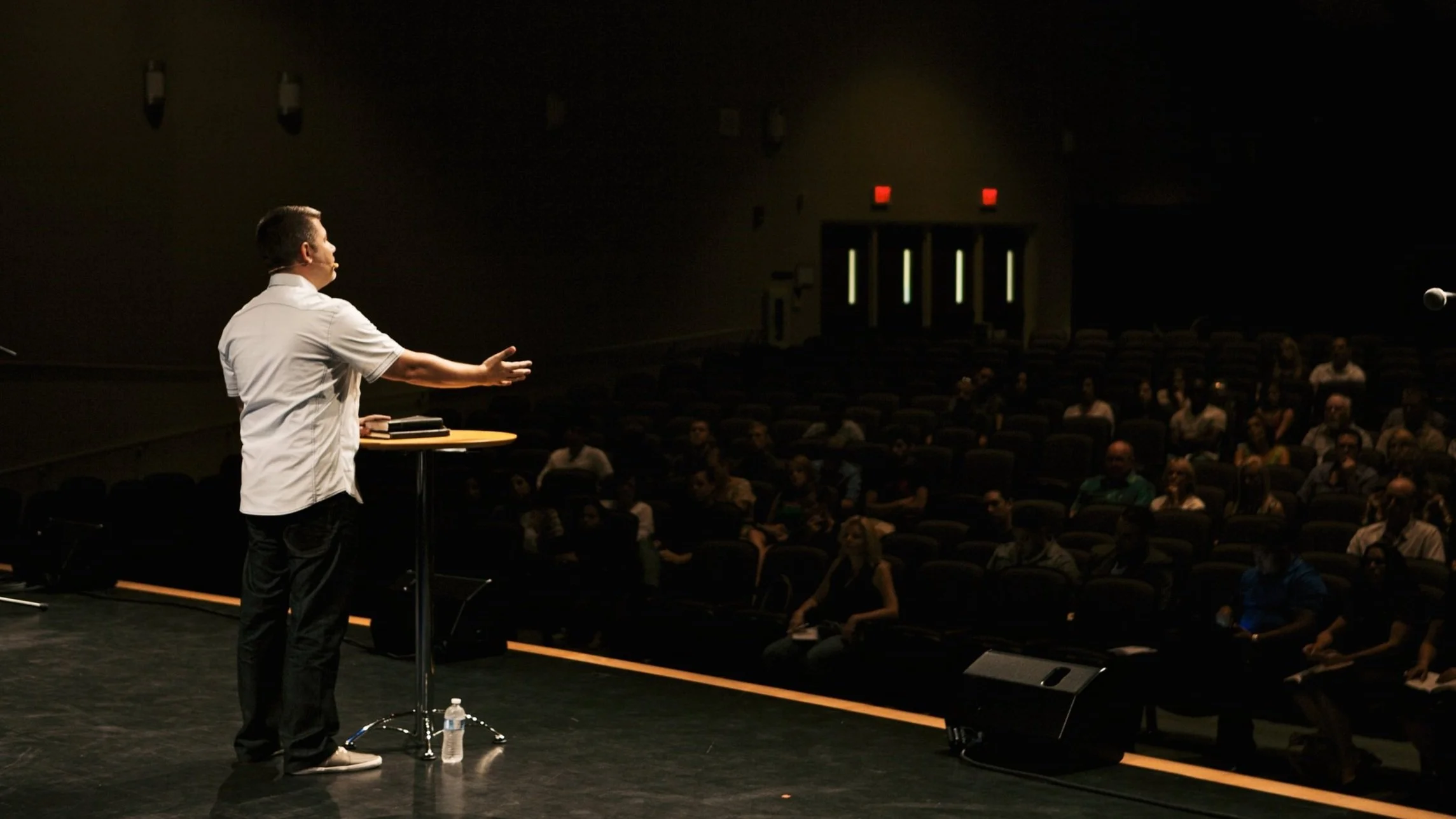Sunday Listening: The Communicator
Sunday morning thousands of pastors talked to hundreds of thousands of congregants. Many words were sincerely communicated. However, how many lives were actually changed?
The answer to that question has to do, in no small part, with the matter of listening.
Scripture is filled with verses that speak to the value of listening to the Word of the Lord.
"Choose life, that both you and your children may live; that you may love the Lord your God, listen to his voice, and hold fast to him." (Deuteronomy 30:20 NIV)
"I listen carefully to what God the LORD is saying, for he speaks peace to his faithful people." (Psalm 85:8 NLT)
"Speak, for your servant is listening.” (1 Samuel 3:10 NIV)
John 10:27: "My sheep listen to my voice; I know them, and they follow me."
Here’s the thing. Most of us were born hearing well, but all of us must learn to listen well. Listening is a skill, indeed an art that needs to be cultivated.
The Pastor's Role in Sunday Listening
Dr. Ralph Nichols, considered by many to be the authority on the subject of listening, believes that we think four, perhaps five, times faster than we talk. This means that if a speaker utters one hundred twenty words a minute, the audience thinks at about five hundred words a minute.
That difference offers a strong temptation to listeners to take mental excursions…to think about yesterday’s basketball game or to think about tomorrow's sales report or to focus on today’s Sunday dinner…then to focus on the sermon.
Research at the University of Minnesota reveals that in listening to a ten-minute talk, hearers operate at only a 28% efficiency. And the longer the talk, the less we track with our ears what somebody's mouth is saying.
Which ought to be sobering to those pastors who preach from forty to fifty minutes a crack! That also explains why some wag has described preaching as "the fine art of talking in someone else's sleep."
Keep it Succinct
When it comes to sermons, longer is seldom better. Which led seminary professor Howard Hendricks to say to his students, “If you haven’t struck oil in 30 minutes, stop boring.”
Good communication is a tricky business. We are all busy people with all kinds of thoughts on all sorts of subjects every waking moment. It's hard work for any preacher to seize our attention, then hold it for an extended period of time – especially since we can think so much faster than he can talk.
So, if pastors would do well to preach more succinctly, what should characterize their sermon? What is the secret sauce of a good message?
The Secret Sauce of a Good Message
Aside from God's vital part in the whole thing, there are three crucial ingredients that make it happen. First, the one who speaks must speak biblically. The preacher speaks because God has spoken. He needs to let His words guide his words.
Second, the one who speaks must speak compellingly. There needs to be a sense of urgency as to why this subject is important to consider. In short, if he doesn’t show that he cares, they won’t show that they care.
Third, the one who speaks must speak practically. The Bible is quite clear that we are to be doers of the Word, not merely hearers of the Word. But that means that clear application must be offered.
None of these are automatic. All are hard work. Just because a Bible is opened and religious words are tossed around, there is no magical spell of sustained interest guaranteed. And difficult as it may be for us preachers to accept this, sincerity in the heart is no excuse for being dry, dull, and boring.
However, there is another key ingredient for Sunday listening. It’s not in the pulpit – it’s in the pew. All too often, the preacher did his job, but the listeners did not do their job.
What can be done by the members of the congregation to keep from tuning out the message? We’ll take a look at that in our next post.
The Everyday Pastor Blog is brought to you by our partners.
To support Dave DeSelm Ministries by becoming a partner, CLICK HERE.

